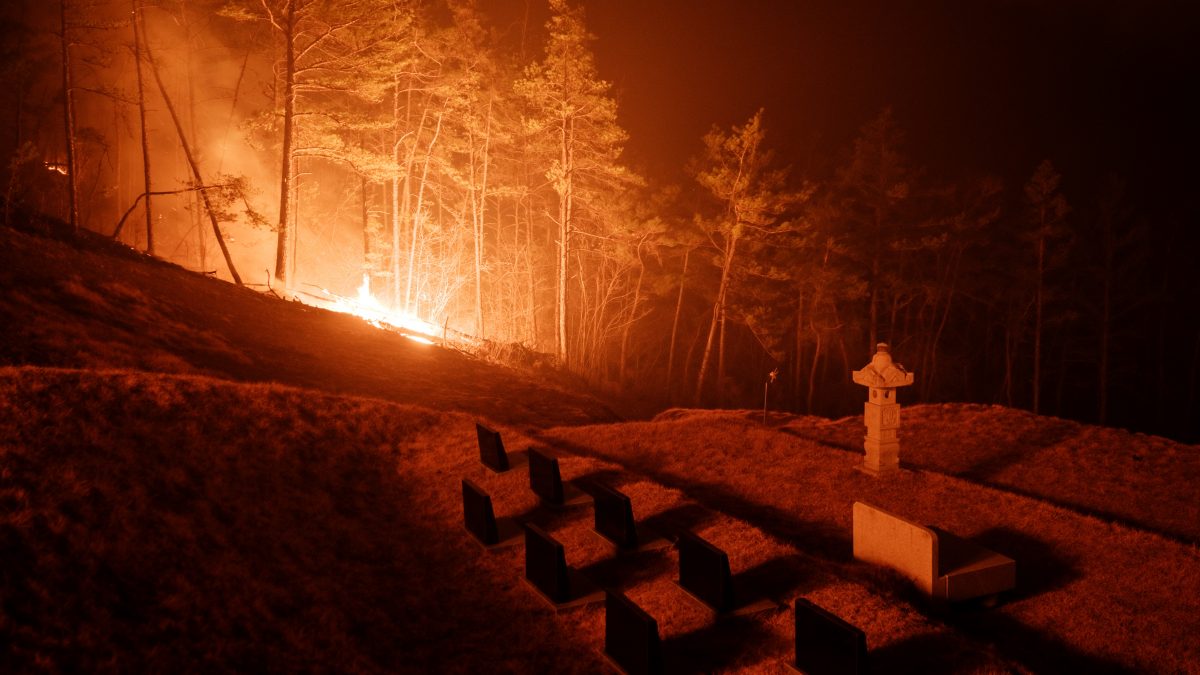South Korean police have opened an investigation into a man suspected of unintentionally starting the country’s worst wildfires on record while clearing gravesites, authorities said on Sunday.
More than a dozen wildfires have ripped through the country’s eastern regions in recent days, driven by strong winds and prolonged dry weather.
At least 30 people have died and more than 48,000 hectares (118,610 acres) of forest have been destroyed, according to the interior ministry. Officials say it is the most extensive wildfire event ever recorded in South Korea.
One of the largest blazes engulfed Uiseong in North Gyeongsang province, where 12,800 hectares of woodland have been scorched. Police believe the fire may have been triggered on 22 March by a 56-year-old man tending to his grandparents’ gravesites.
“We booked him without detention for investigation on Saturday on suspicions of inadvertently starting the wildfires,” a provincial police official said. The man will be summoned for formal questioning once an on-site inspection concludes, a process that could take over a month.
Local media reports say the man had been trying to burn overhanging tree branches using a cigarette lighter. According to his daughter, the flames were caught by the wind and spread rapidly through the surrounding area. Yonhap news agency quoted her as telling authorities that the fire “ended up sparking a wildfire.” Police declined to confirm the details of her account.
The fires have been fuelled by months of below-average rainfall and intensified by strong winds, following what was South Korea’s hottest year on record in 2024.
Impact Shorts
More ShortsAmong the victims was a helicopter pilot who died when his aircraft crashed while battling the flames in a mountainous area.
The destruction has also affected cultural landmarks, including the Gounsa temple complex in Uiseong, a historic Buddhist site believed to date back to the 7th century.
The crisis has highlighted South Korea’s growing regional and demographic imbalances. Many of the hardest-hit rural areas are sparsely populated and disproportionately inhabited by elderly residents, complicating evacuation efforts and firefighting operations.
With inputs from AFP


)

)
)
)
)
)
)
)
)



